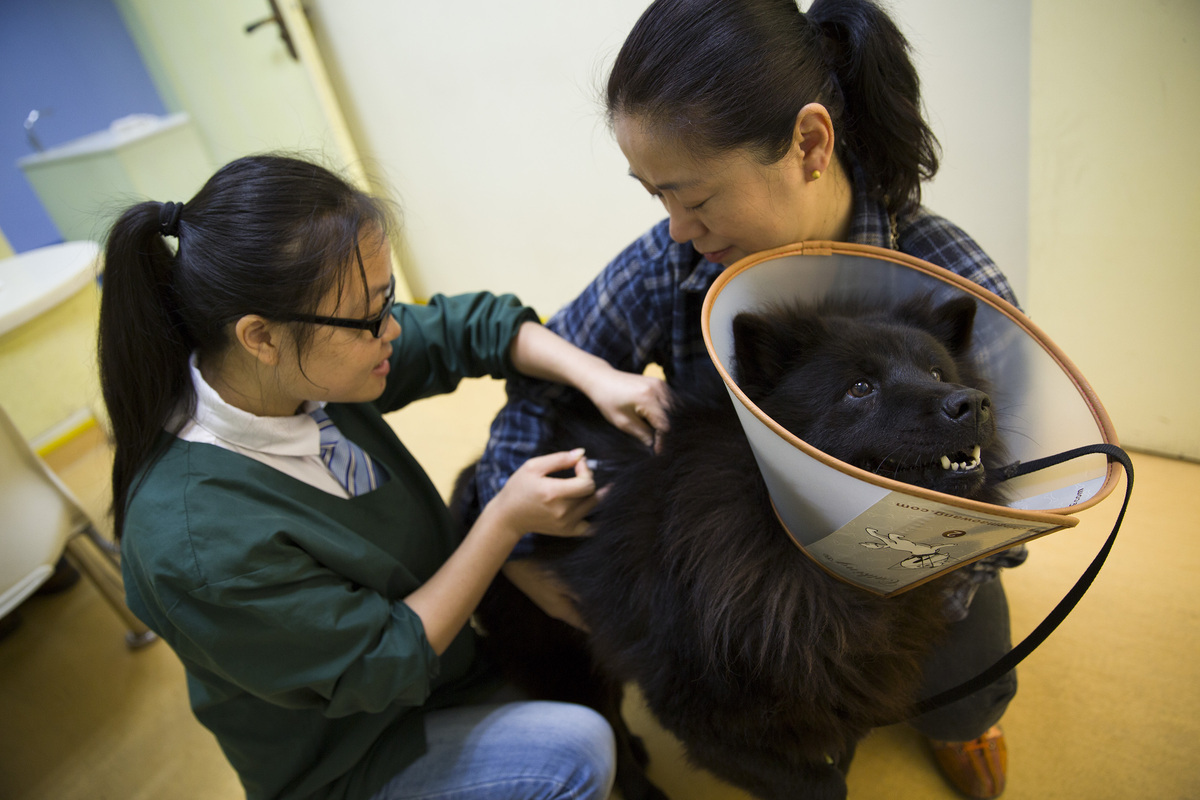'Disease models' set to play crucial medical role


In 1996, Dolly the Sheep became the world's first large cloned mammal. However, she was a latecomer, as tadpoles were cloned back in 1952 and mice in 1986.
Dolly was followed by Snuppy, the world's first canine clone, born in South Korea in 2005. To date, more than 20 types of mammal have been cloned successfully, including cats, dogs, mice, horses, sheep, pigs and cows.
Last year, scientists at the Chinese Academy of Sciences cloned monkeys using the same technique that produced Dolly, marking the first time that primates had been cloned successfully.
Unlike embryo splitting, which yields just a few "copies", a technique called somatic cell nuclear transfer can produce an indefinite number of clones from a single donor, according to Zhao Jianping, vice-president of Sinogene, a Chinese biotech company.
Zhao said the technique is used to clone pets and working animals, including police dogs, sniffer dogs and guide dogs.
Wang Zecheng, director of Sinogene's executive office, said: "There is a significant shortage of working dogs in China. They are one-in-a-million animals, and very difficult to breed. Many are purchased from overseas."
Wang added that the Police Dog Training Base in Nanchang, Jiangxi province, has expressed interest in the company's technology to produce a new generation of working dogs.
He said the company is focusing on another potential field; building "dog disease models" for medical studies via gene editing and cloning.
By manipulating a specific gene in a dog's DNA that relates to a certain illness, a "disease animal model" can be built, and then several copies can be produced by cloning.
In 2016, Sinogene successfully created the world's first gene-edited dog.
The animal, named Apple, is a disease model for hardening of the arteries, a major cause of heart attacks, strokes and peripheral vascular disease.
"Generally, new drugs are first tested on smaller animals, such as mice. Then, before being tested on humans, the drugs are tested on larger animals that have closer genetic bonds with humans; for example, monkeys," Wang said.
However, monkeys for medical tests usually cost about 100,000 yuan ($14,400) each, and they do not reach sexual maturity until age 6. By comparison, dogs are sexually mature at 12 months, and 96 percent of their gene sequence is the same as that of humans, making them an excellent choice.
Zhao said: "As far as we know, about 300 illnesses and medical conditions are directly linked to specific genes, and dogs with the same genes will display similar symptoms to humans. We are studying how to build a 'dog model' for autism, and we believe that gene editing, together with cloning, will play a crucial role in the future of medical studies."
He added that the company plans to cooperate with wildlife protection organizations to build a gene bank of endangered wildlife via cell preservation techniques.
"The bank will provide an opportunity for the rebirth of those species and save them from extinction," he said.
- 'Trend' voted word of 2025 across Taiwan Strait
- China issues policy paper on Latin America and the Caribbean
- Share your views on 2026 China's Government Work Report
- HKSAR's 8th LegCo tasked with fostering Hong Kong's development: LegCo president
- Symposium on study, research of Xi Jinping Thought on Diplomacy held in Beijing
- China announces two mandatory national standards for civil drones




































